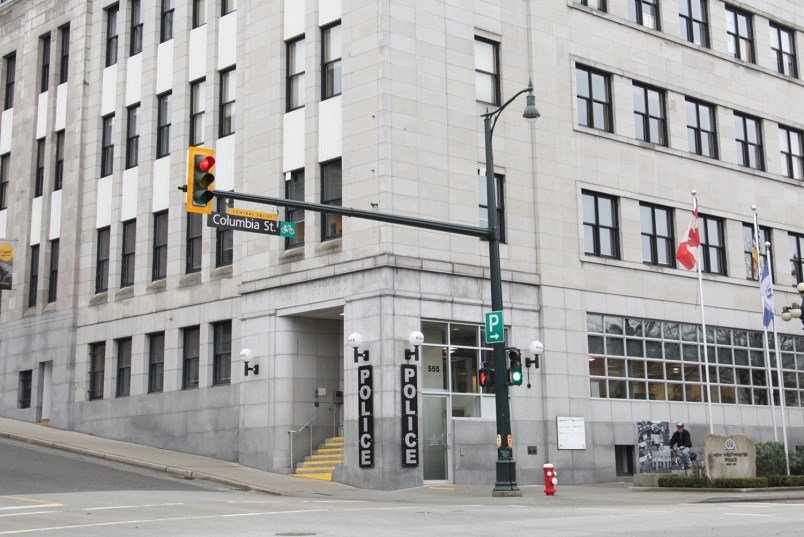We write this letter on the behalf of the New Westminster Secondary School’s Socialist Literature Club, a group of students dedicated to promoting revolutionary care for our community and expanding the political consciousness of our peers.
It has come to our attention that members of our community suffer from a critical misunderstanding of the construction of crime, particularly through this recent letter to the editor: New West police need more money to fix 'scary' downtown area.
Mr. Tupper demonstrates the lack of empathy demanded of our communities by the colonial hegemony of so-called Canada. To continue targeting people of colour with incarceration and over-policing, the colonial state demands we view them as, to quote Mr. Tupper, “despicable” criminals undeserving of empathy and restoration.
Mr. Tupper is an incredibly apt example of the ignorance that privilege cultivates. His solutions lie in higher policing with “proper funding” so “criminals [get] locked up and [stay] locked up”, relying on an antiquated understanding of justice where punitive measures are the ultimate deterrents.
We think to adequately address Mr. Tupper’s assertions on crime in New Westminster, we must first define what type of crime is prevalent. Data released by Statistics Canada indicates the reality of crime in New Westminster: crime is not rampant violence as Mr. Tupper would have you believe; in fact violent crime rates in New West are 15% lower than the national average and only constitute 18% of our overall crime.
Crime in New Westminster is instead 81% property based. Property based crimes that can include theft, breaking and entering, burglary, auto theft, arson or vandalism are ultimately symptomatic of a larger social ill, one that policing will not inherently solve. We agree that crime is an issue, but not in the context Mr. Tupper claims. The issue of crime is the lack of community support and resources. The issue of crime is constructing the ‘us’, the wealthy white privileged, and the ‘them’, the low-income or people of colour the state has deemed as undeserving of justice. The issue of crime is racism and colonialism.
The Socialist Literature Club proposes the following solutions:
First, we advocate for a wholescale restructuring of community accountability in New Westminster. We find the tactics of the NWPD based on retributive justice to be stagnant in the face of a political landscape hurtling towards a holistic care for our community members. Instead, we urge the NWPD to adopt a practice of restorative justice. Restorative justice, as defined by Communities for Restorative Justice, has three basic principles: first, crime is a violation of people and relationships, second, crime creates harms, needs, and obligations and third, those most affected should be meaningfully included and empowered. Most importantly, however, is that restorative justice works. The same site presents statistics for the validity of restorative justice that indicate its efficacy: the re-offence rate under restorative justice was 18% compared to the 27% under traditional criminal justice. For the victims, they were satisfied with the results 79% of the time compared to traditional justice’s claims to 57% and under restorative justice victims feared re-victimisation just 10% of the time in comparison to the 23% of traditional criminal justice.
Second, we push for the city council to fund and support alternatives to the carceral system that acknowledge why people are driven to crime, including but not limited to working alongside the NWPD to adopt practises of restorative justice. We find it juvenile and bourgeois to leave the notion that “people commit crime because they are bad and only bad people commit crime” unquestioned. The Socialist Literature Club is fully aware of how poverty, institutionalised racism and colonial conceptions of our social relationships isolate community members and drive them to drastic measures. As such we urge the New West council to reallocate increased police funding to initiatives such as harm reduction and safe supply centres, supported by evidence-based research on their efficacy, increased social housing, supported by statistics that, among others, indicate a reduced rate of recidivism with access to housing, or accessible mental health resources, improving upon pre-existing programs such as the New Westminster Mental Health and Substance Use Centre.
Mr. Tupper demonstrates an interesting phenomenon when he argues that in a perfect world, community members would be given life-saving support, not viewed as deviants undeserving of empathy. This is not a perfect world, not an unattainable utopia where everyone falls in line. This is the attainable future we strive for, a future that demands we ask where the provincial funding from institutions like Riverview went after they were abolished, one that asks why people suffer mentally, one that realizes we have to build a system better equipped to deal with the problems of our society.
So, the Socialist Literature Club asks of Mr. Tupper and all our community members: will you struggle to build that world along with us?
Submitted by Grace Hodges on behalf of the Socialist Literature Club



